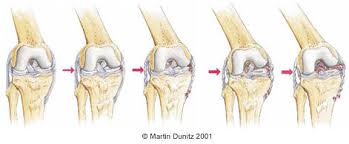Medial Collateral Ligament Injuries
Medial Collateral Ligament injuries occur when the knee is being stressed towards the inside – into a knock kneed position – either via non-contact (running/stepping resulting in the knee being twisted) or contact scenarios (an opponent in sport falling onto the outside of the knee).
Medial Collateral Ligament injuries occur when the knee is being stressed towards the inside – into a knock kneed position – either via non-contact (running/stepping resulting in the knee being twisted) or contact scenarios (an opponent in sport falling onto the outside of the knee). As a result of the extra force being placed through the tissue the ligament becomes overloaded resulting in damage to the tissue which can range from a small sprain to the ligament to a full rupture of the ligament.
Symptoms will generally be localised to the inside of the knee especially over the ligament. In moderate to larger tears there will be a large amount of swelling, diffuse pain through the knee and laxity within the ligament resulting in a knee that will feel quite unstable.
The injury is graded on a scale of 1-3.
Grade 1 – A small sprain to the ligament resulting in a small amount of pain and small loss of function.
Grade 2 – A moderate sprain to the ligament resulting in a portion of the fibres being torn. Moderate to large swelling, unstable knee, loss of movement and limping..
Grade 3 – A full rupture or tear of the ligament resulting in loss of stability, large swelling, loss of mobility and a large amount of laxity within the knee. Frequently these injuries are associated with other damage to the knee including cruciate ligament tears.
Advanced Physio Treatment
Advanced Physio will provide different treatment options dependent on the grade of the injury. Treating a Grade 1 injury includes activity modification, ensuring that the patient avoids aggravating activities and starting a progressive strengthening program. Recovery for this level will take around 2-4 weeks. Treating a Grade 2 injury requires a period of immobilisation with the aid of a knee ranger brace. The position and the time the brace is used for is dependent on the level of the injury and the symptoms of the knee. Recovery for this level will take around 6-8 weeks A Grade 3 injury requires period of immobilisation with the aid of a knee ranger brace. The position and the time the brace is used for is dependent on the level of the injury and the symptoms of the knee. Recovery for this level of injury will take up to 12 weeks. These grades will also require the development of a graded strengthening program. As a patient progresses through their rehabilitation, our skilled physiotherapists will be gradually return the patient to sport specific training, if required.

